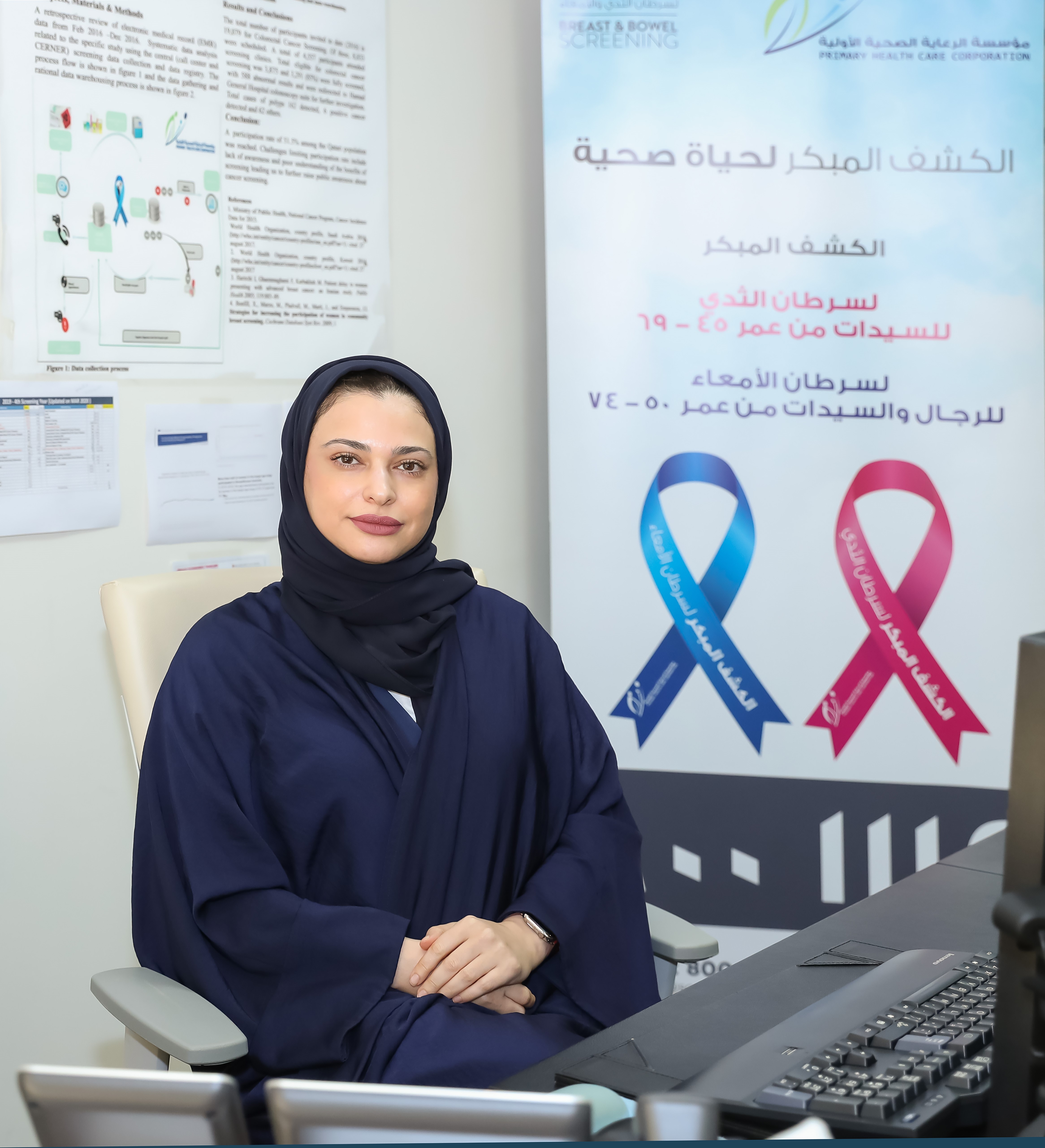Dr. Shaikha Abu Shaikha: Breast and Bowel Cancers Are Most Common Cancers in Qatar

On February 4th, the world celebrates World Cancer Day, spreading awareness and promoting prevention methods to fight against this disease and reduce its spread. Qatar has taken crucial steps to address this and improve early detection of different cancers and their therapeutic measures, by providing platforms for sharing experiences and advancing anti-cancer strategies worldwide.
The Ministry of Public Health has reported that breast and bowel cancers are Qatar's most prevalent cancers. In response, the Primary Health Care Corporation (PHCC) has focused on providing early detection services for these two types of cancer.
According to Dr. Shaikha Abu Shaikha, Director of Screening Programs at PHCC’s Preventative Health Directorate, World Cancer Day aims to raise awareness about different types of cancers, ways to prevent them, and the significance of early detection. It also strives to support worldwide initiatives in fighting against cancer and improving care for individuals affected by the illness.
Early Detection Services
PHCC provides early detection services for various types of cancer, including breast cancer, bowel cancer, and cervical cancer. Specialized clinics at Leabaib, Rawdat Al Khail, Al Wakra, and Muaither health centers offer early detection services for breast and bowel cancer to the target group, in addition to a new clinic dedicated to early bowel cancer detection at Al Sadd Health Center. These clinics have state-of-the-art mammogram technology and are staffed by a team of well-trained clinical specialists. They offer regular screenings for breast cancer every 3 years and bowel cancer every 2 years.
The cervical cancer early detection service is offered at all PHCC health centers to women aged 21-69 who are not experiencing any related symptoms. Women aged 21 to 49 are screened every 3 years, while those aged 50 to 69 undergo screening every 5 years.
Dr. Abu Shaikha added that early detection services aim to regularly screen healthy individuals from the target group, to promote the well-being of patients and increase the chances of detecting the disease, particularly in its early stages. It is worth pointing out that when the disease is detected in its early stages, the cure rate can reach 100% for breast cancer and 90% for bowel cancer.
Cancer Suspected Patients 48-hour Referral Service
Patients who are suspected of having cancer can benefit from PHCC's 48-hour referral service. This service guarantees a speedy referral to a secondary healthcare specialist within 48 hours for timely diagnosis and appropriate treatment. The PHCC's Early Detection Programs Department plays a crucial role in achieving this ambitious national goal.
A patient-centered approach is essential in cancer treatment, utilizing state-of-the-art technologies and highly trained doctors to ensure the highest quality of care for the patient.
Access to Service
Dr. Abu Shaikha reported that during 2023, 8,070 males and females were screened for bowel cancer and 8,358 females were screened for breast cancer.
She added that a free screening service is available to citizens and residents who meet the following specific requirements:
- Age. This includes providing early detection services for breast cancer in women aged 45-69, as well as for bowel cancer in both men and women aged 50-74.
- Valid ID and health cards.
- Not showing any symptoms of the disease.
- Not having a mammogram during the last 3 years (for early detection of breast cancer) and not undergoing a bowel screening in the last 2 years or a colonoscopy during the last 10 years (for early detection of bowel cancer).
Furthermore, the service can be accessed through the program's call center, which sends out invitations to encourage participation, or through health center doctors from all specialties who electronically refer patients to early detection clinics. Patients can also contact the program on 8001112 to book the nearest appointment at the clinic.
The early detection service for cervical cancer is offered at all health centers, and appointments can be scheduled through the nursing team once the necessary screening requirements are met.
Regular Early Detection
Dr. Abu Shaikha added that it is Qatar's National Cancer Program's responsibility to regularly conduct early detection. When the results are within normal range, a notification is sent via text message to the patient. In the case of abnormal results, which do not necessarily indicate cancer, the patient will be contacted and a follow-up appointment will be scheduled with the program's physician.
During the follow-up appointment, the physician will explain and outline the next course of action, the refer patients to Hamad Medical Corporation (HMC) within 48 hours, as well as referring them to HMC's bowel clinic for a colonoscopy. As for cervical cancer, an appointment will be scheduled to review the results with the female physician two weeks after the undergoing the screening.
Most Common Cancers
In Qatar, breast cancer was among most common cancers for both men and women, making up 17.39% of all cases, as per the Qatar National Cancer Registry. Bowel cancer and thyroid cancer followed with rates of 8.87% and 7.45%, respectively. Indeed, this highlights the importance of early detection of breast and bowel cancer.
Prevention Tips
To minimize the chances of developing cancer and safeguard oneself against it, Dr. Abu Shaikha suggested the following:
- Undergo routine screenings for early detection. This can potentially save lives by identifying any possible or concealed symptoms of cancer at an early stage.
- Follow a healthy lifestyle. Maintaining a healthy lifestyle that includes healthy food and regular physical activity.
- Quit smoking. If you are a smoker, look for options to quit smoking. It is worth noting that PHCC offers a smoking cessation service at various health centers.
- Protect yourself. Use sunscreen and avoid excessive exposure to the sun to prevent skin cancer.
- Educate yourself. Learn about different types of cancer and ways to prevent it. Contribute to the community by raising awareness and setting an example for others.
Contact our doctors. If you experience any unusual symptoms, please call 107 to schedule an appointment with the doctor.